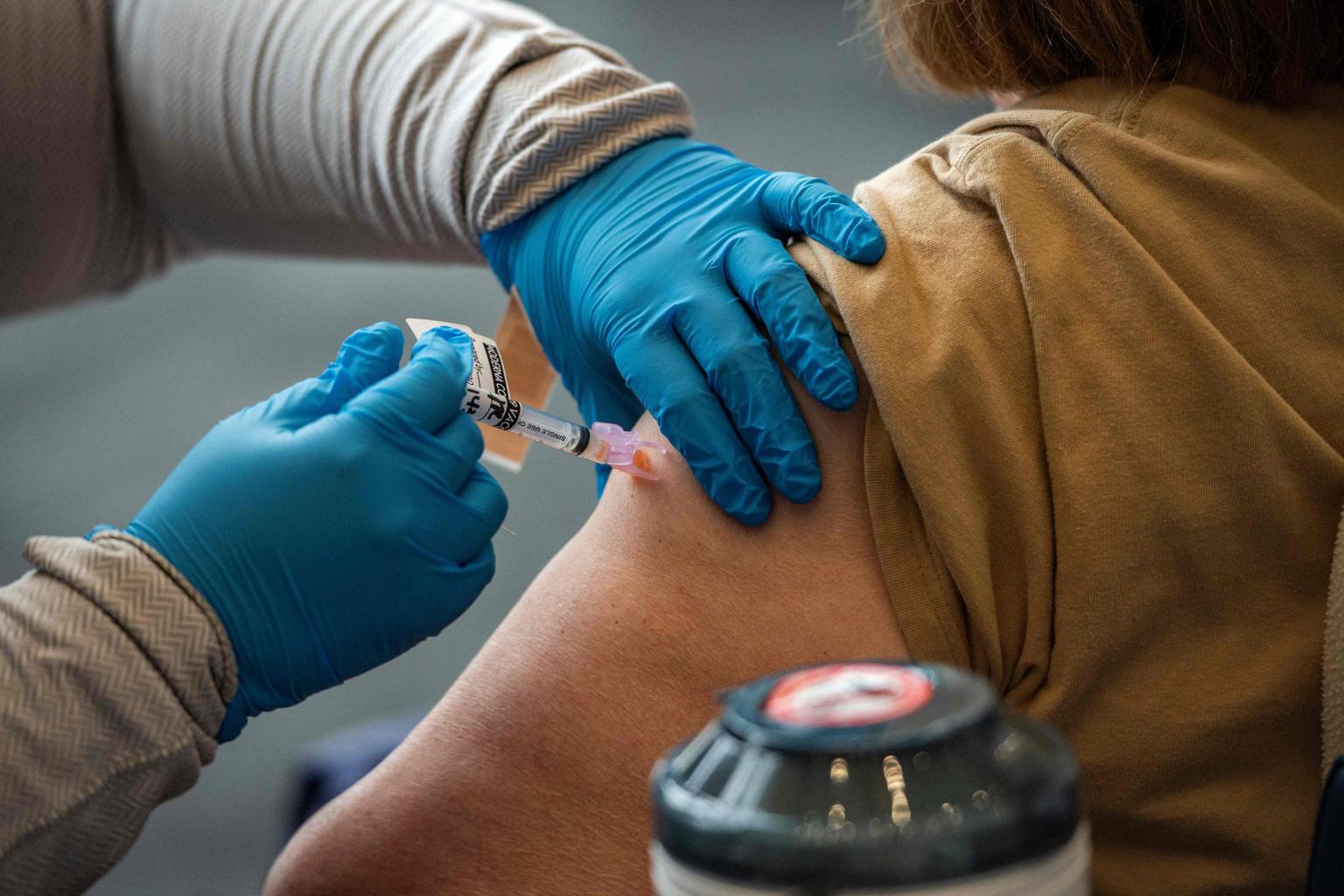Those who have been infected with Covid-19 may need only one dose of vaccine, study suggests
Sign up now: Get ST's newsletters delivered to your inbox

Researchers found that people who had previously been infected with the virus reported fatigue, headache, chills, fever, and muscle and joint pain after the first shot.
PHOTO: AFP
Follow topic:
NEW YORK (NYTIMES) - Shannon Romano, a molecular biologist, came down with Covid-19 late last March, about a week after she and her colleagues shut down their lab at Mount Sinai Hospital.
A debilitating headache came first, followed by a fever that kept rising, and then excruciating body aches. "I couldn't sleep. I couldn't move," she said. "Every one of my joints just hurt inside."
It was not an experience she wanted to repeat - ever. So when she became eligible for the Covid-19 vaccine recently, she got the shot.
Two days after her injection, she developed symptoms that felt very familiar. "The way my head hurt and the way my body ached was the same headache and body ache I had when I had Covid," she said. She recovered quickly, but her body's intense response to the jab caught her by surprise.
A new study may explain why Romano and many others who have had Covid report these unexpectedly intense reactions to the first shot of a vaccine.
In a study posted online on Monday (Feb 1), researchers found that people who had previously been infected with the virus reported fatigue, headache, chills, fever, and muscle and joint pain after the first shot more frequently than those who had never been infected. Covid survivors also had far higher antibody levels after both the first and second doses of the vaccine.
Based on these results, the researchers say, people who have had Covid-19 may need only one shot.
"I think one vaccination should be sufficient," said Florian Krammer, a virus expert at the Icahn School of Medicine at Mount Sinai and an author of the study. "This would also spare individuals from unnecessary pain when getting the second dose and it would free up additional vaccine doses."
While some scientists agree with his logic, others are more cautious. E. John Wherry, director of the University of Pennsylvania's Institute for Immunology, said that before pushing for a change in policy, he would like to see data showing that those antibodies were able to stop the virus from replicating.
"Just because an antibody binds to a part of the virus does not mean it's going to protect you from being infected," he said.
It might also be difficult to identify which people have previously been infected, he said. "Documenting that becomes a really potentially messy public health issue," he said.
Side effects after vaccination are expected. They show that the immune system is mounting a response and will be better prepared to fight off an infection if the body comes into contact with the virus. The Pfizer and Moderna vaccines are particularly good at evoking a strong response. Most participants in the companies' trials reported pain at the injection site, and more than half reported fatigue and headaches.
It is not necessarily surprising that previously infected individuals might experience more intense reactions. Both shots contain bits of genetic material that spur the body to manufacture spike proteins, the knobby protrusions on the coronavirus's surface. People who have already been infected with the virus have immune cells that are primed to recognise these proteins. So when the proteins show up after vaccination, some of those immune cells go on the attack, causing people to feel sick.
Dr Susan Malinowski, an ophthalmologist in Michigan who had Covid-19 in March, certainly felt like her body was under attack after she received the Moderna vaccine. She got the first shot before lunch on New Year's Eve. By dinner, she was starting to feel ill. She spent the next two days miserable in bed.
"I had fevers. I had chills. I had night sweats. I had pain everywhere in my body," she said. "I was actually more ill after the vaccine than I was with Covid."
Questions about more severe vaccine reactions in people who have already had Covid came up at a Jan 27 meeting of an expert committee that advises the Centers for Disease Control and Prevention.
Dr Pablo J. Sánchez, a committee member from the Research Institute at Nationwide Children's Hospital in Columbus, Ohio, noted that he has heard from people who had a response to the vaccine that was worse than their previous experience with Covid-19. He suggested that a question about prior infection be added to the information that the CDC requests from vaccine recipients. "It's not asked," Sánchez said. "I do think that is really important."
Dr Tom Shimabukuro of the CDC, who presented safety data to the committee, said that the agency was investigating the issue. "There's limited data on that right now but we are looking at ways to which we can get better information," he said.
People who have had Covid seem to be "reacting to the first dose as if it was a second dose," said Akiko Iwasaki, an immunologist at the Yale School of Medicine. So one dose is probably "more than enough," she said.
A study published recently reported that surviving a natural infection provided 83 per cent protection from getting infected again over the course of five months. "Giving two doses on top of that appears to be maybe overkill," she added.

